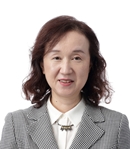
The fast-paced advances in engineering and innovations in science and technology in the 20th century have brought tremendous benefits to all. At the same time, however, they have compelled us to face huge environmental changes on a global scale, in forms such as global warming, desertification, atmospheric pollution, fluctuating economies, exhaustion of resources, and aging society.
The social system surrounding us is therefore very complex, and this complexity derives not merely from a large number of factors but also the tangled interweaving of these factors. This and the involvement of humans further increases the degree of complexity which makes it more difficult to solve problems. There are high hopes that mathematical sciences, which are constantly developing and evolving, will elucidate and resolve these complex phenomena. This task requires the practice of mathematical sciences that will construct new extraction models for the identification and understanding of the essence of phenomena while focusing on quantitative models that faithfully grasp these phenomena, which have been used in a variety of fields to date.
In 2007, Meiji University instituted the Meiji Institute for the Advanced Study of Mathematical Sciences (MIMS) and embarked on the development of “mathematical sciences that contribute to society.” In addition, it has promoted the Formation and Development of Mathematical Sciences Based on Modeling and Analysis, a Global Center of Excellence (COE) Program, since 2008, and is continuing its research activities as a “Joint Usage/Research Center for Mathematical Modeling and Applications” certified by the Ministry of Education, Culture, Sports, Science and Technology (MEXT) in 2014. Furthermore, in the context of mathematical modeling and analysis, it has been conducting research activities centered on the elucidation of phenomena by modeling since its adoption under the MEXT Private University Research Branding Project in 2016.
The Graduate School of Advanced Mathematical Sciences was born in 2011, in response to various social needs related to mathematical sciences, as an institution that fosters human resources able to practice mathematical sciences with an emphasis on involvement with society.
We have added two new majors in the academic year 2017. These two programs will join the existing Mathematical Sciences Program, which is devoted to mathematical understanding and elucidation of complex social and life phenomena based on mathematical foundations. One is the Frontier Media Science Program aiming to design new information media systems and new technologies for human computer interaction based on mathematical models of human sensibility and psychology, which will contribute to the spiritual happiness as well as the material wealth in our life. The other is the Network Design Program, which will propose and build sophisticated yet flexible network systems to assist the realization of sustainable societies and support their infrastructure. In all, we are carrying out multidisciplinary education and research centering on mathematical sciences.
In a society that is increasingly sophisticated and complex, the Graduate School will continue its collaboration with MIMS to serve as an educational research center able to foster and produce capable human resources who are able to be active even on the international scene, by instilling them with capabilities for identifying the essence of things as well as mathematical sciences.
Dr. ARAKAWA Kaoru
Dean of the Graduate School of Advanced Mathematical Sciences
Professor of Engineering


